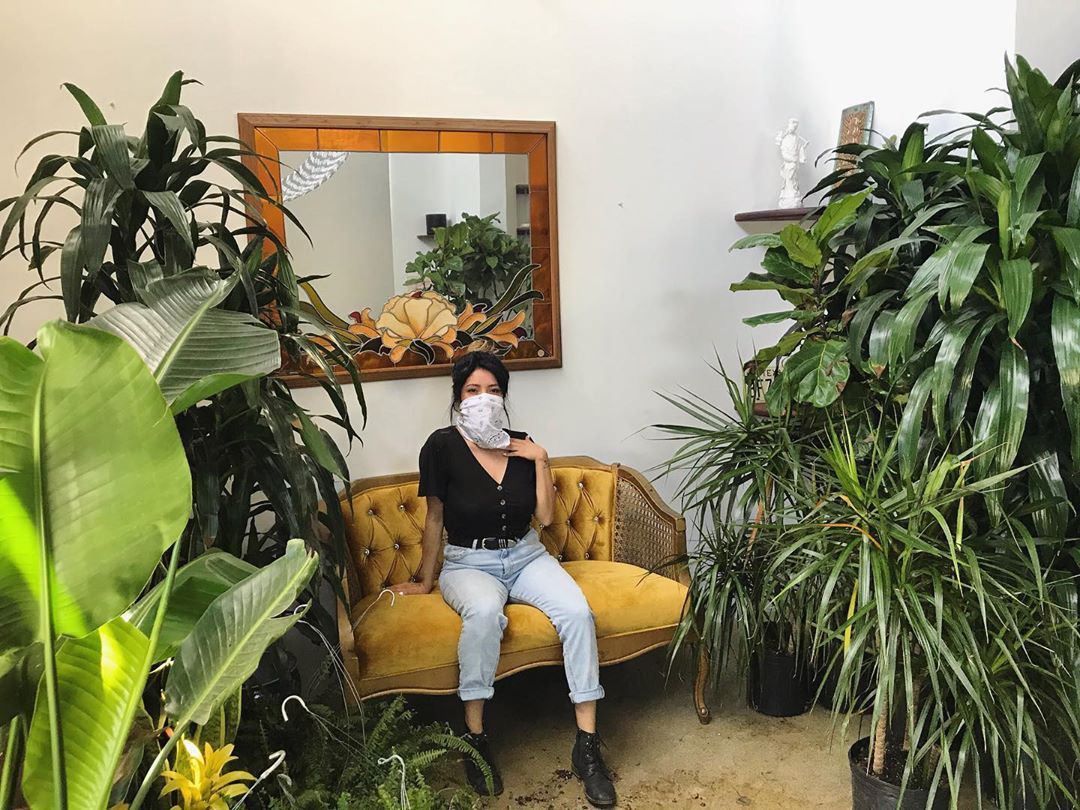[dropcap size=big]W[/dropcap]hen artist and Boyle Heights resident Andi Xoch created the Instagram account, Latinx with Plants, she wasn’t expecting it to take off the way it did. The account celebrates and highlights “Latinx identity through plants” with photos of Andi’s own plants, photos of other Latinx plant parents, art, and memes. While the account plays into the stereotype and trend of millennials caring for plants and pets rather than having kids, Andi fully embraces it.
“I feel like people forget how plants are living organisms and are attuned to the world around them,” said Andi. “They are not things, they need attention and care like any other living creature.”
The maternal relationship individuals form with their plants and pets, while often the butt of jokes, is real and rooted in personal experiences. For Andi, she attributes her connection to nature and plants to childhood memories of her family going on trips. “My dad would take the family out to different parks and hiking cause it was free, so it instilled a love for nature and plants early in my life.” She adds that growing up, her parents didn’t have the money to take the family to amusement parks or any other place that would cost money, so going to parks and being in nature not only a cost-saving measure, but a bonding experience. Looking back, Andi treasures those moments with her family and surrounding herself with nature remind her of those special times.
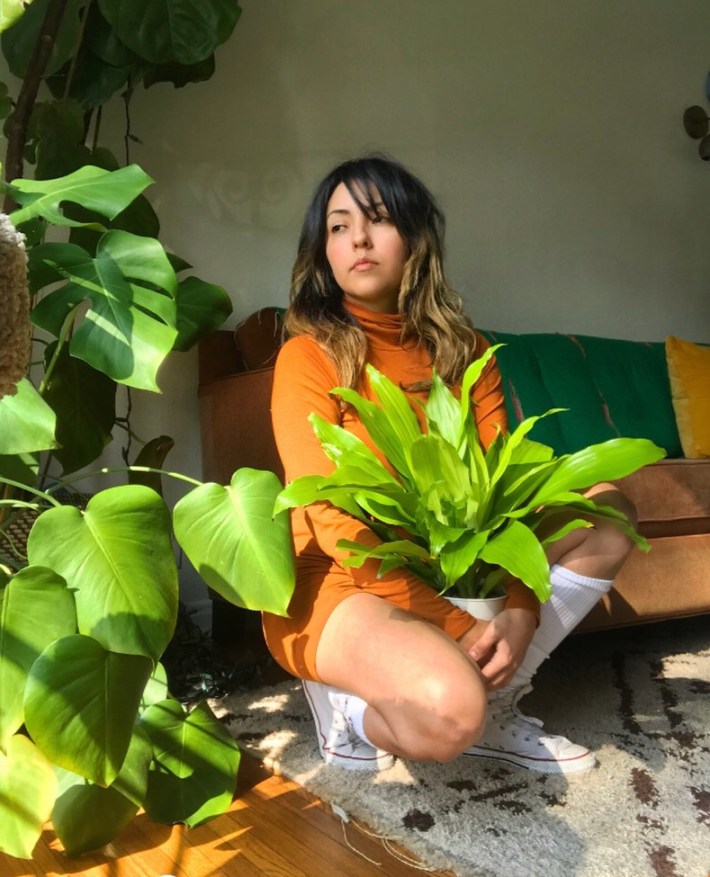
Yet, it wasn’t until Andi returned home from a cross country bike ride in 2013 that she realized how integral plants and nature were to her personal and emotional well-being. “On that bike ride, I saw incredible landscapes and got to connect with nature on another level. But once I got home, I fell into a deep depression. It was hard, but despite everything that was going on, caring after my plantitas kept me grounded and helped me get through it,” explains Andi.
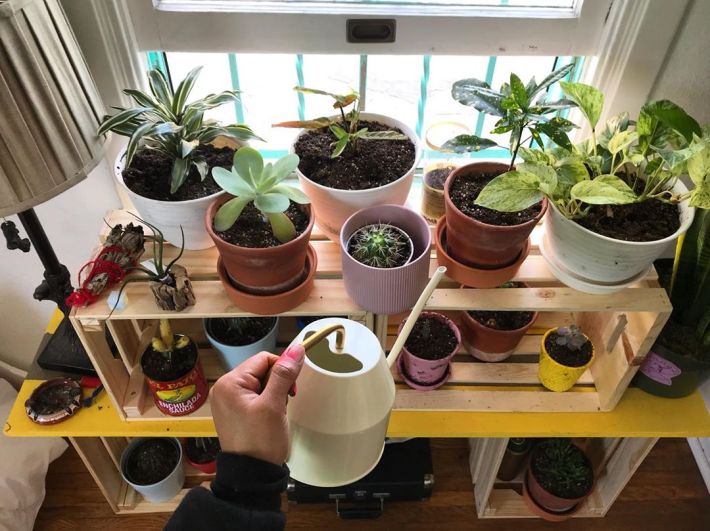
How the Instagram account came to be
The Latinx with plants Instagram account has been around for more than a year now and has been growing organically with regular posting from Andi. When asked what led to the creation of the account, she credits D’Real Graham of the account, Blacks with Plants. “I got to know D’Real through his activism and work in Washington D.C. I followed his work and when he created the Blacks with Plants account, I started following his journey there to support his work,” recalls Andi. “If it wasn’t for his support and blessing, I would have never started the Instagram account.” A few months after starting the account, necessity led Andi to start using the account as a way to also start selling some of the plants she was posting on the account. “In December of 2019, I had a family emergency and needed to raise funds to help pay the bills, so I started selling plants at pop-ups like Self Help Graphics’ annual holiday market.
“While we can’t stop the pollution from trains, planes, and cars in our [urban] neighborhoods, we can take small steps like growing plants in our yards and homes.”
Not only was I able to sell some plants, but I was also connecting with other plant parents and bonding with them. So I decided to continue selling plants, not just because I needed the money, but because I was helping others connect with their plant babies,” said Andi. Since the pandemic, she has adapted how she interacts with people and become much more meticulous to keep everyone safe in these times. “Plant adoptions are coordinated, we wear mask, and keep our distance at all times even though it’s hard sometimes cause you wanna give people hugs.”
Aesthetics vs Necessity
The stereotype of being a plant parent is often seen through the lens of privilege, more often than not, the word ‘hipster’ becomes the default way to describe it and put it down. Almost like a slur. Self-described Plant Papi and East Los Angeles resident Miguel Ramos agrees that while the Millennial stereotype of being a plant parent holds true, it’s only to an extent.
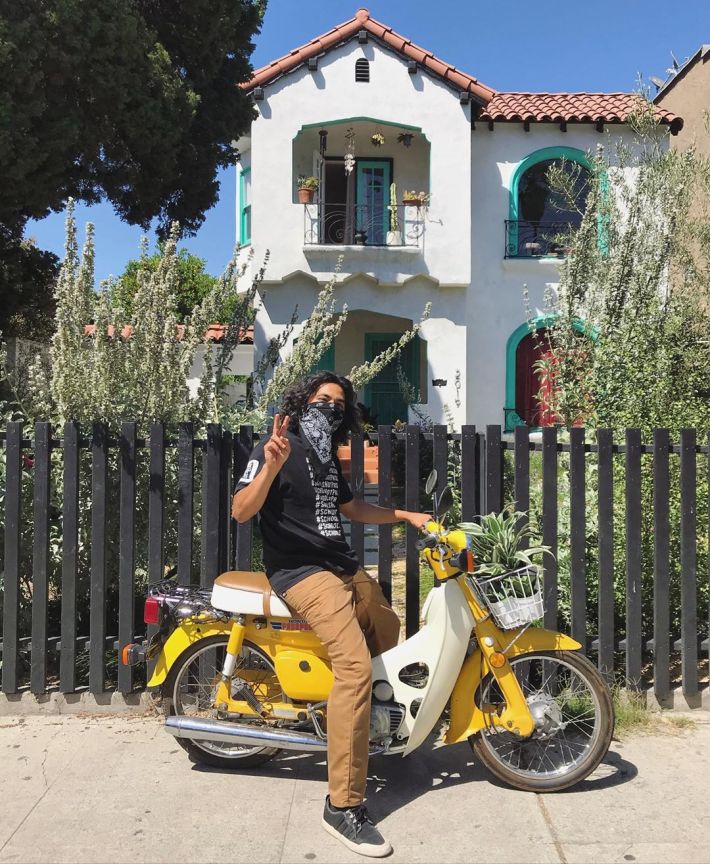
“That’s something this generation is doing more, looking for more than just aesthetics, but looking for substance and plants do both. Not only do they look aesthetically pleasing, but they do so a lot of different uses, like being natural filters for your home,” said Miguel.
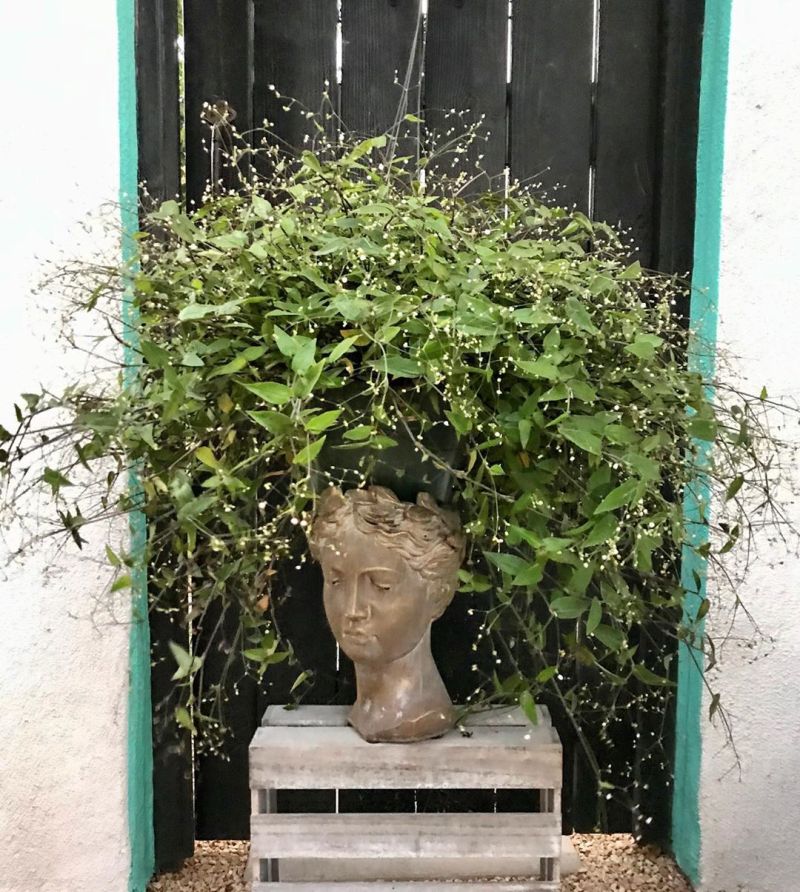
And he’s right. During my interviews with both Andi and Miguel, they both described in their own way how people of color and other cultures have a deep-rooted history with plants and nature. From medicinal purposes, growing food at home, and improved mental health. “I think we need that, especially for communities of color and other communities that have not had access to good things in their environment. This is also an opportunity to change our immediate environment. While we can’t stop the pollution from trains, planes, and cars in our [urban] neighborhoods, we can take small steps like growing plants in our yards and homes.”
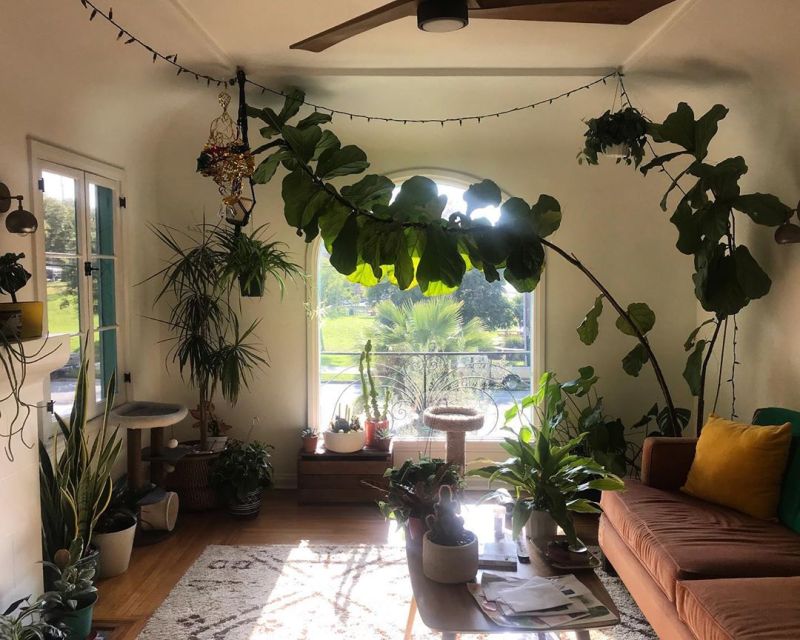
For Andi, it’s about the rasquachismo tradition in communities like Boyle Heights. Rasquache meaning reusing of everyday items and giving them a new purpose, like taking an empty can of El Pato tomato sauce and using it as a pot for plants. “Walking around the neighborhood, I see peoples yards and sometimes stop to admire what they’ve done with their gardens,” says Andi. “Our communities are hella creative and can make the best out of any situation. So it makes me happy to walk by yards and seeing people growing food or plants from their home country you know. They’re not going to a commercial hardware store and buying plants to make their home look nice, they’re growing plants out of a deeper connection to nature.”
For the time being, Andi will continue to host plant adoptions through the Instagram account and connect with fellow plant parents. Despite everything going on, Andi is still able to support her local nursery. “As more and more businesses close because of the pandemic, I do my best to continue supporting local businesses and their workers,” said Andi. She adds that while it has been challenging at times, the feedback she gets from supporters keeps her going.
“Every now and then, I’ll get messages from people who have adopted plants from me and they share how much joy it has brought them. That makes it all worthwhile.”
